This month marks the end of Montgomery County Public Schools’ first semester meeting back in person amid the ongoing COVID-19 pandemic. Schools county-wide are reporting surges in violent outbreaks and altercations.
Over the past 11 weeks, police responded to 48 reported assaults within the county’s public school system. Students and county council members alike cite pandemic-related mental health concerns as a key contributor to the increase in school violence.
“We’ve had three fights in my school in the few months we’ve been in-person,” said Kyson Taylor, a junior at Rockville’s Richard Montgomery High School and co-chair of the county’s Student Wellbeing Action Group (SWAG). “I had never seen a fight in school until this year. I think that says something.”
Students continue to demand increased mental health support to counter the effects of the pandemic, but Taylor said he’s frustrated by the county’s lack of action.
“Students’ mental health needs grow more intense by the day,” he said. “Every second we wait on this, the more harm it causes students and the school environment.”
Complicating COVID factors
The effects of the COVID-19 pandemic are widespread and varied but share an underlying consequence — severe damage to mental health, particularly in vulnerable populations like minority communities, people subjected to poverty, and children.
On Monday, The Associated Press-NORC Center for Public Affairs Research released findings from a national survey titled “Gen Z and the Toll of the Pandemic.” Among participants ages 13 to 24, 46% said the pandemic made it harder to pursue their education or career goals. Roughly half of respondents across all generations said the pandemic led to struggles with mental health maintenance.
Montgomery County Councilmember Nancy Navarro said, “While everyone has been through a tough time in the last few years, children are the ones who will have the greatest lingering effects of the pandemic.”
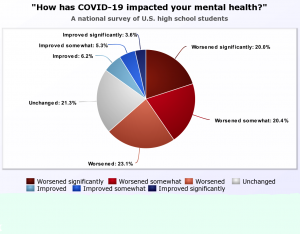
Medical research points to pandemic-generated factors like social isolation, loneliness, lack of physical exercise and family stress as significant stressors on adolescent mental health. In October, the American Academy of Pediatrics issued a joint statement alongside the American Academy of Child and Adolescent Psychiatry and the Children’s Hospital Association declaring this issue to be a national emergency.
“Across the country we have witnessed dramatic increases in Emergency Department visits for all mental health emergencies, including suspected suicide attempts,” the statement read, going on to call for increased funding of mental health support at all levels of the government.
In Montgomery County, Councilmember Will Jawando said loss of learning and socialization have resulted in heightened anxiety and depression for students. These effects are exacerbated for students of color and students from low-income households, he added.
Taylor described his own experiences wrestling with his mental health during the pandemic.
“I’ve developed a lot more anxiety than I’ve had in the past around school and other things relating to workload,” he said. “It’s common knowledge between students that during the pandemic, there were a variety of stresses that led to the deterioration of our mental health. We came back to school, and there was nothing in the school to help with those concerns.”
Jawando also pointed to economic fallout as a major contributor to the issue. He reported that around 60,000 county residents experienced food insecurity before the pandemic, meaning they didn’t know where their next meal would come from or didn’t have consistent access to food. As of August 2021, he said that number had risen to 100,000 — nearly double the pre-pandemic figure.
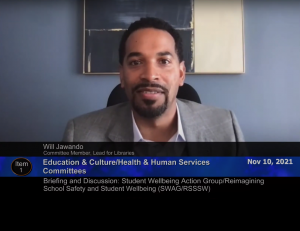
As a father of four, Jawando said he has personally had many opportunities to witness the severe impacts of the pandemic on children within local schools.
“The system is strained,” he said, “because we’ve all gone through a lot.”
Elimination of police presence
On top of the many pandemic-related shifts surrounding the reopening of schools, Montgomery County introduced another variable over the summer months. For the first time in almost two decades, no armed police officers are stationed within MCPS high schools.
The removal of school resource officers, or SROs, from public school facilities resulted from strong community pressure following the 2020 surge in civil rights activism and Black Lives Matter protests.
Instead, MCPS replaced these officers with “Community Engagement Officers.” These officers patrol the areas around school property without directly engaging with students or school staff, except when responding to a call.
Taylor said SWAG has been integral in pushing for this change. The work group was created in May 2021 with the goal of centering student voices in the county’s decision-making. Taylor said Councilmembers Jawando and Craig Rice tapped him to co-chair the committee because of his extensive prior experience testifying in front of the council on community issues.
SWAG’s preliminary report, released in July 2021, expressly called for the removal of police presence from school campuses. The work group wrote that allowing officers to remain would “hinder our ability to move away from punitive punishment and subject students of color to the school-to-prison pipeline.”
Jawando cited data that is “devastatingly disproportionate” regarding the number of students of color and students with disabilities who experience negative police interactions in their schools. Despite African American students representing only 20% of the total student population, Jawando said they make up half of students who are arrested or have negative interactions with police. That number increases to 75% when Latino students are included.

Jawando asserted that for students to return to the classroom setting and be met with armed police officers could actually have resulted in even more trauma than what is already being observed.
“There’s better people to deal with these challenges,” he said, pointing to the need for more school counselors, social workers and psychologists.
Increasing mental health support
Councilmember Evan Glass said there is “universal agreement” that every public high school in the county needs a licensed clinical social worker on staff. “That is the bare minimum,” he said.
When the council was negotiating the county budget in the spring of 2021, Glass suggested devoting $2 million in funds to further this goal. “My colleagues did not agree with that decision,” he said, calling it a “missed opportunity.”
“We need bilingual, queer mental health professionals,” Glass said. “Managing stress is a lifelong journey. We need to teach our young people to self-regulate and self-assess so that they are better prepared for success.”
In November, the council passed $252 million in additional funding for school staffing via federal aid from the American Rescue Plan Act. Councilmember Navarro said these funds would support 271 new positions in the public school system, including 40 counselors and 50 social workers.
Jawando said the county council needs to pass their 2022 budget by May and is currently in communication with MCPS to “identify realistic timelines” for hiring new mental health professionals.
SWAG continues to be involved in the budget negotiations, Taylor said. The next step is to meet with the county council’s Education and Culture Committee, but Taylor said the ongoing discussions have not yet amounted to any tangible progress.
“I’m kind of sick of having conversations,” he admitted. “It’s time for us to put the funding aside and get these social workers hired immediately.”

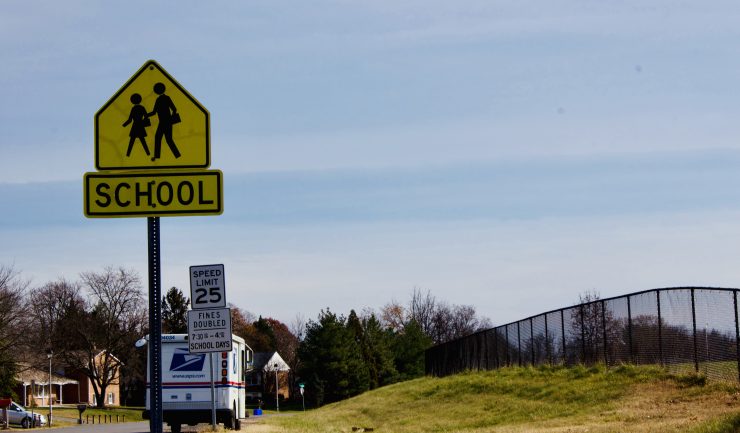
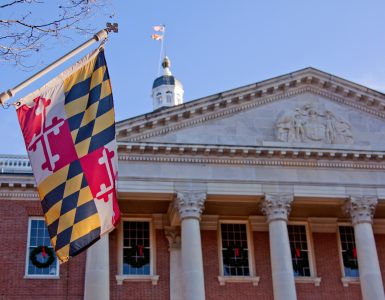
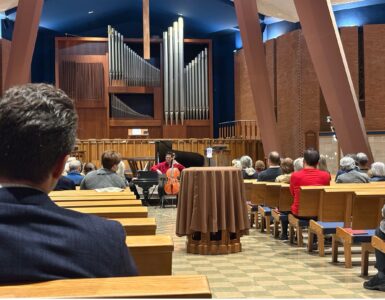











[…] have responded to over 48 reported assaults in Montgomery County’s public school system over the past year, including three fights at […]
[…] these issues so I will just put a few links. SROs were removed from schools in 2021 and violence (second article) and drug use has skyrocketed since in MCPS. Some community members say MCPS was safer with SROs. […]
[…] were removed from schools in 2021 and violence (second article) and drug use has skyrocketed since in MCPS. Some community members say MCPS was safer with SROs. […]